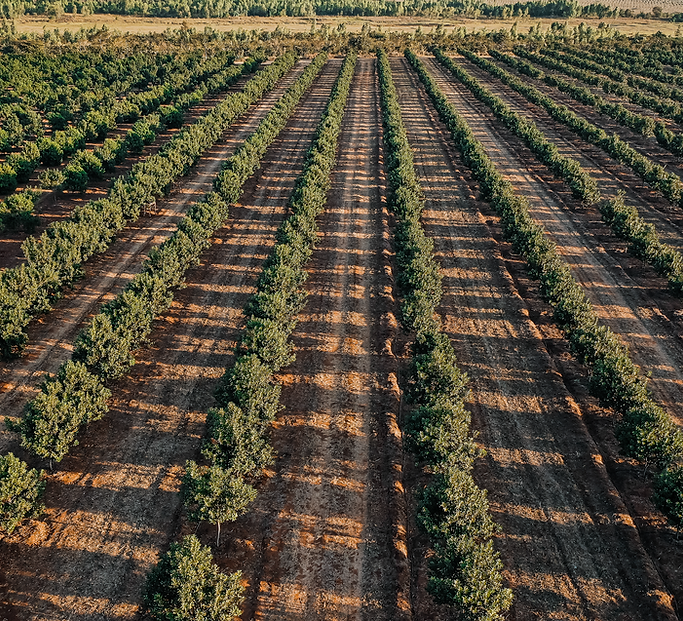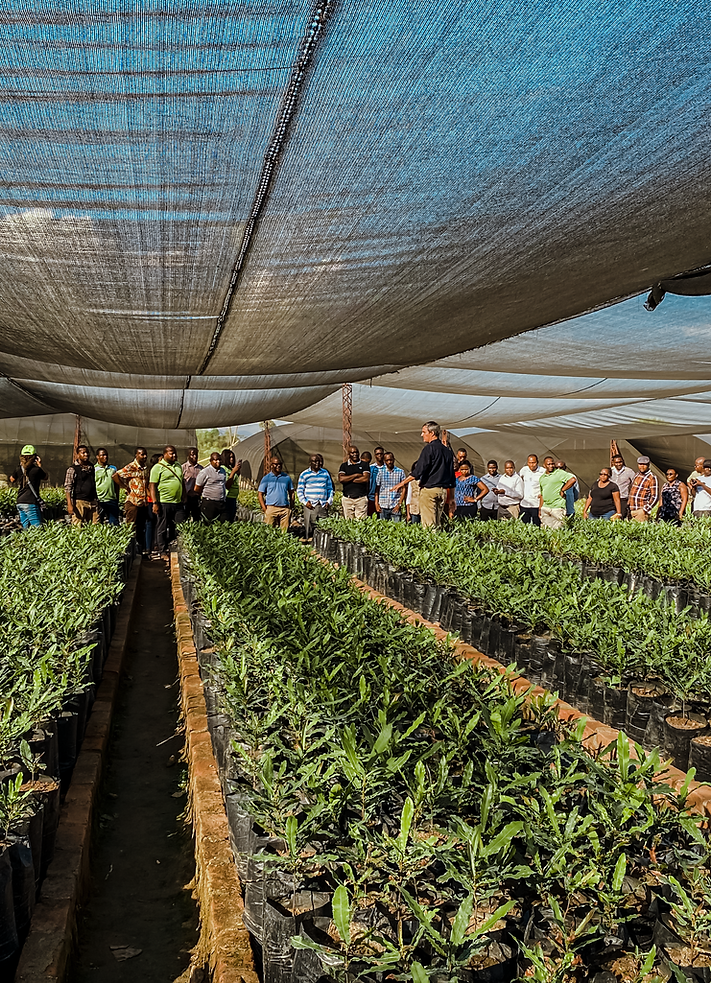
Why Farmland, Why Africa?
Farmland is a proven real asset class offering long-term capital preservation, inflation protection, and portfolio diversification. As global demand for food accelerates and arable land remains finite, farmland continues to deliver stable, resilient returns across market cycles. It can also enhance the overall resilience and return efficiency of a portfolio, particularly in uncertain macro environments.

Stable Income
Farmland generates recurring cash flow through operations or long-term leases, with income that’s less volatile than public markets and tied to seasonal—not economic—cycles.
Capital Appreciation

As land becomes scarcer and demand for food, fiber, and fuel increases, farmland values have shown consistent appreciation globally.

Diversification Benefits
With low correlation to equities, bonds, and even other real assets, farmland strengthens portfolio stability and reduces systemic exposure.

Downside Protection
Agriculture produces essential goods. Even in recessions, demand remains inelastic, making farmland a highly defensive, counter-cyclical asset.
Why Africa
Africa holds 60% of the world’s remaining uncultivated arable land, yet receives less than 5% of global agricultural investment. The region presents one of the last scalable frontiers for real asset investment—combining land abundance, favourable growing conditions, and increasing export connectivity.
At Signature, we provide institutional access to this underallocated opportunity, developing and managing farmland portfolios that generate hard currency-linked revenues, build resilience to climate risk, and align with sovereign priorities such as food security, rural employment, and sustainable development.
Strategic Relevance for African Investors
For African institutional investors, farmland represents a strategic opportunity to allocate capital to a sector that is economically vital and deeply aligned with the continent’s development priorities. Agriculture is a key driver of employment, food security, and rural livelihoods across Africa. By investing in farmland, institutions can support the buildout of long-term agricultural infrastructure, enhance domestic value chains, and contribute to a more resilient and self-sustaining economic future.


Our Investment Approach
At Signature, we take an active, disciplined approach to building high-performing agricultural portfolios. Our strategy combines local execution, technical excellence, and a structured model for creating and compounding long-term value.
We target farmland assets with strong agronomic fundamentals, secure water access, and the ability to scale. Every investment is supported by deep due diligence, market insight, and a clear plan to generate both income and appreciation.
How We Invest
Operational Influence
We invest through majority or structured minority positions that provide governance rights and board representation. This enables direct involvement in financial, ESG, and strategic decision-making.
Agronomic and Technical Excellence
Our team brings deep experience in improving soil health, optimizing input use, and enhancing productivity through data-driven agronomy. This drives yield improvements and reduces long-term operating risk.
End-to-End Value Creation
We invest across the full value chain—from land and irrigation to processing, logistics, and market access. Our vertically integrated model is designed to capture margin, reduce volatility, and align production with market demand.
Local Integration
We work with well-established operators—international, regional, and local—who bring execution strength and on-the-ground insight. Our teams are embedded in the markets where we invest, enabling close collaboration with partners, communities, and stakeholders.
Diversification by Design
We allocate capital across different crops, geographies, and climate zones to reduce exposure to price swings, weather variability, and market shocks. This enhances portfolio resilience and supports stable, risk-adjusted returns.
Long-Term Stewardship
We approach farmland as a long-duration asset to be developed and held over time. Our active ownership model is rooted in governance discipline, operational performance, and a commitment to sustainable value creation.
Our Investment Criteria
We apply a structured screening framework to evaluate farmland investments across agronomic, financial, and strategic dimensions. Each opportunity is assessed using a proprietary scorecard that blends qualitative judgment with quantitative analysis—ensuring consistency, discipline, and alignment with our investment mandate.
Agronomic Quality
Productive or high-potential farmland with secure water access, suitable soils, and a strong climate profile for the target crop.
Scalability and Market Access
Assets with room to grow operationally and commercially—anchored by existing market demand, logistics connectivity, and potential for vertical integration.
Strong Operating Partners
Established, experienced sponsors or operators with a relevant track record, clear commitment, and aligned interests.
Cash Flow Visibility
Projects that offer clear income potential within a defined ramp-up period. For operating businesses, preference is given to assets with proven profitability and limited leverage.
Transparent Structure and Governance
Equity-driven transactions with governance rights, clear use of proceeds, and aligned capital structure. Co-investment potential is an added strength.
Strategic Fit and Policy Alignment
Investments that align with national agricultural strategies, export competitiveness, and long-term food security goals.
Responsible Stewardship
Compliance with international ESG standards is a baseline. We favour projects that improve soil health, reduce emissions, enhance biodiversity, or engage smallholders as part of a broader development footprint.


